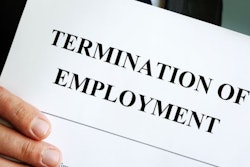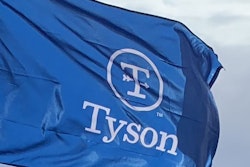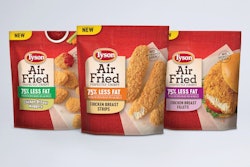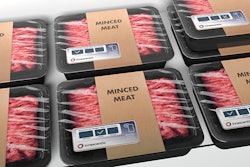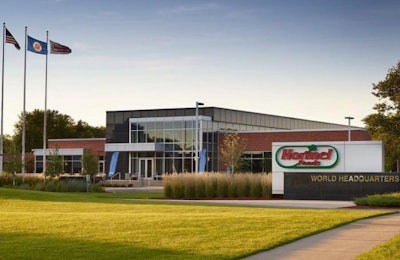
While participating in the webinar, “Impacts of COVID-19 on Minnesota’s Food and Ag Supply Chain,” Richard Carlson, Hormel Foods vice president of quality management, was asked about difficult decisions that needed to be made during the pandemic.
His response was when it comes to employee health and safety, there are no difficult decisions.
While speaking during the webinar, hosted by the Agricultural Utilization Research Institute (AURI), on December 16, Carlson said Hormel Foods has a series of cultural beliefs, and the first of those is one called “safety first.”
“What that means to us is that employee safety, food safety and safe animal handling practices are paramount to what we do every day. The COVID pandemic really provided us the opportunity to demonstrably live that cultural belief of safety first,” said Carlson.
“When we think about employee safety, there really aren’t difficult decisions. There are just the right decisions, so that’s how I think we’ve approached this entire scenario.”
Suspending production at plants
During the spring, production was paused at five Hormel Foods plants – including three Jennie-O Turkey Store plants. Carlson said the five temporary closures took place for “a mixture of reasons.”
One of those reasons was because workers were nervous to come to work and were experiencing anxiety.
“When there were the first few COVID-positive cases, people became concerned. They weren’t sure if they should come to work, and so clearly there was a need for us to step up and do something different in order to reach them, to calm their anxiety, and help them feel better about being at work,” he said.
In one instance, a plant was idled because only one employee tested positive. But the circumstances surrounding that one worker made suspending production the right thing to do, Carlson said.
Hormel Foods’ plant in Alma, Kansas, produces refrigerated entrees and foodservice barbecue products. The facility has just over 100 employees. The one employee who tested positive was part of a carpool in which 11 workers rode in a van together to work each day.
“We knew enough at that point, and this was early April, to know that there was a pretty good likelihood that more of those employees from that carpool would indeed become positive. So, without waiting, we made the decision to idle that business and send everybody home and keep them safe,” he said.
“That probably was the single moment when we said this was not a hard decision, but a decision that we maybe never expected to have to make.”
During the webinar, Carlson also talked about how the “muscle memory” the agrifood industry developed during the pandemic can be beneficial during future disruptive events.
View our continuing coverage of the coronavirus/COVID-19 pandemic.



